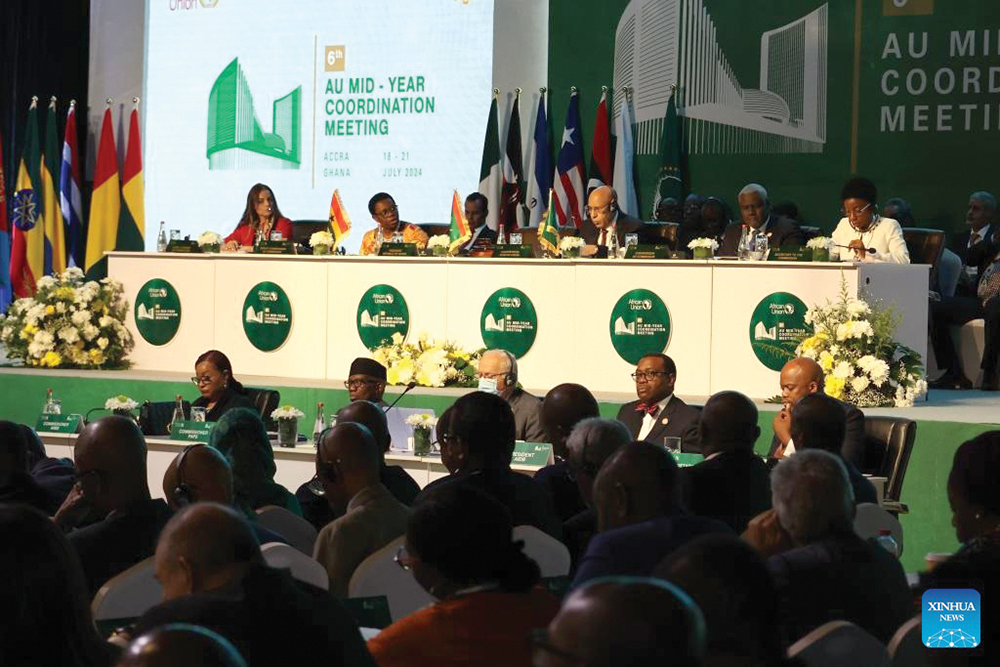Meeting sees continent’s leaders stress greater collaboration to advance development goals

African countries have resolved to strengthen their collaboration in the implementation of the African integration agenda, underscoring the role of member states in the allocation of adequate financial resources to ensure the effective implementation of continental integration.
Moussa Faki Mahamat, chairman of the African Union Commission, said African countries can maximize the potential of integration avenues, like the African Continental Free Trade Area (AfCFTA), by making it an engine of growth and diversification of the economies to increase trade within the continent.
“The AfCFTA is obliged to become a lever that catalyzes structural reforms which, in turn, will facilitate the creation of wealth, through the improvement of economic governance, the mobilization of financing and human capital,” Faki said.
He made the remarks on July 21 during the African Union’s sixth midyear coordination meeting in Ghana’s capital Accra. The meeting, bearing the theme “Educate and Skill Africa for the 21st Century”, brought together the AU, the Regional Economic Communities (RECs), and AU members, among others.
Mahamat highlighted the need for member countries to present a united front in upcoming engagements with international partners. He also emphasized the importance of speaking with one voice at major global forums, including the G20, where the AU now holds membership.
Ghana’s President Nana Akufo-Addo said the urgency to consolidate the fragmented financial instruments to accelerate Africa’s development agenda must be met if Africa is to achieve full integration.
“By consolidating our development funding instruments, we can create a more cohesive and effective financial framework that ensures resources are allocated where they are most needed. This consolidation will not only streamline our efforts but will also improve our capacity to mobilize domestic and external resources efficiently,” Akufo-Addo said.
He said some regions in Africa are still being plagued by conflict, instability, and violence that hinder development and pose a threat to broader continental security.
Mohamed Ould Cheikh Ghazouani, Mauritania’s president and current chair of the AU, said cooperation and integration will strengthen strategic planning and operationalization of critical continental infrastructure, such as regional power pools, and digital and transport infrastructure. He urged member states to redouble efforts in trade facilitation through the simplification, standardization, and harmonization of related procedures and information flows to boost intra-African trade.
Kidi Mwaga, a Kenyan law and governance expert, said Africa has no choice but to fast-track its integration process by overcoming political and historical hurdles that have stood in the way of its unification. In his view, opening up intra-Africa trade is the first critical step toward economic integration in Africa.
“Currently, when, for instance, Kenya wants to trade with Uganda, they first have to transact through the US in terms of buying dollars. We therefore must create a payment system that ensures that trade within Africa must first remain in Africa. In so doing, we will be able to alleviate poverty and suffering and give people a fair shot at upward social mobility,” Mwaga said.
Despite the challenges facing Africa, Mwaga believes that African integration is the silver bullet for Africans to find their way out of poverty, insecurity, and violence as well as the way out of manipulation of Africa by the West.
The AU introduced its mid-year coordination meeting in 2017 as the principal forum to align the work of the AU and RECs and coordinate the implementation of the continental integration agenda.


